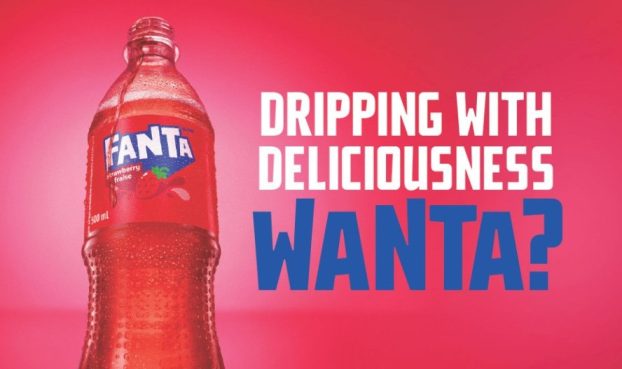Mr. Harrison’s call to rally the advertising troops on the front page of the Aug. 8 issue seems more like exasperation that comes from the prospect that the very essence of advertising is no longer a viable precept.
In The Virtual Corporation, authors Davidow and Malone write: ‘In fact, it is possible that many of the components of traditional marketing are now all but obsolete.’
Such perspectives (if embraced) can offer ‘ad’ industry rejuvenation and deliverance.
If the industry can stop trying to protect the status quo by superficially tinkering with the mix, and get on with ‘real change,’ it wouldn’t be such a vacuous rally.
No longer serviceable
In the face of mammoth global restructuring, and the trend towards virtual corporate/consumer behavior, the product-centred, persuasion-based tactics of short-form advertising may no longer be a serviceable scheme upon which to forge any effective, relevant or sustainable rapport with alienated consumers.
The industry might better serve clients by asking itself what has it done for the consumer recently because, without doubt, the consumer has become the most important ally.
This is ‘ko-kyoku,’ the Japanese term for customer, meaning, ‘to take personal care of…honorable and respected guest,’ and the implications (and unprecedented potential) are astounding.
Frank Feather in The Future Consumer writes: ‘To make superficial corporate change or merely tinker with your marketing mix will achieve nothing. You need to make dramatic change; you need to remake your company in the image of the future consumer.’
The future is here, and everything is about the consumer.
Product-centred (message-centred) strategies are too adversarial and risk further alienating the most important new player (read: consumer) who increasingly distrusts and rejects such methods.
Authors Peters and Waterman, in In Search of Excellence, write: ‘Despite all the lip service given to market orientation, the consumer is either ignored or considered a bloody nuisance.’
Passionate sincerity
Further food for thought comes from author Guy Kawasaki who noted: ‘In a world of informed consumers who see through most advertising hype, the sole remaining course for marketing is passionate sincerity.’
It appears that the industry has bought its own hype and is fossilized to the point of circling the wagons.
Is it possible to imagine (in the ’90s) advertising that ‘engages people with lines they can embrace or music they just might whistle?’
This is an oxymoron and further suggests the industry is out of sync with the new consumer. (Recalling the ‘dinosaur’ parable and what over-specialization does is just too tempting.)
Advertising lacks integrity, credibility, accountability and relevance with consumers.
Employing clever slogans or jingles to sway informed and empowered consumers doesn’t cut it. Advocating shallow, superficial, short-form ‘sell’ bytes fabricated by creative wingnuts locked behind a gauntlet of paranoid ‘ad’ people is sheer folly.
There will be a few bursts of success based on the old axioms, but, in truth, the ruse is about up. Advertising has no lineage as the consumer’s good neighbor.
I believe it was Jeff Sneddon in the u.s. who said: ‘Personal marketing is about what customers want (not what the company needs.) It is driven by value-based customer-controlled interaction, outside-in marketing and distribution, and personal freedom and liberty.’
Any function?
Does advertising have any function in this scenario?
With all the writing on the wall, Mr. Harrison might benefit by issuing a call for the industry to set out on a mission that is truly founded upon and responsive to consumer-centred concerns.
Helping consumers with information (the new currency) that will improve their lives (read: future) with the industry – including its media clout and financial, creative force – as a ‘partner’ in a shared-destiny fashion?
What about consumer-centred concerns like ethics, credibility, honesty, virtuous behavior, corporate citizenship, relevance, economy, crime, safety, job skills training, illiteracy, child welfare, etc.?
To embrace these consumer-centred challenges and recognize them as threshold imperatives upon which a new breed of messaging can have meaningful linkage with consumers would be a compelling first step.
To continue employing the standard ‘ad’ mentality denies consumer reality. The old axioms are dead and are now impediments that continue to distract and defer needed changes.
Davidow and Malone note that in the emerging new world order, ‘competition will be so fierce and the need for trust and teamwork within the virtual corporation so vital that the market will exact its retribution with shocking speed. In this environment, under the threat of annihilation, we will have to cling to one another for safety.’
What is advertising clinging to for safety? Itself?
Corporations and governments around the world are recognizing this and acting on it.
Floundering
In the face of all this phenomenal potential, the advertising industry seems to flounder, defining change based on outmoded principles from within its own corridors and subsequently rendering itself incapable of accepting the consumer as an ally and partner. Incapable of speaking with consumers and insisting on talking at them.
Consumers face a myriad of problems that require solutions.
At the risk of using an old adage, perhaps advertising is a part of the problem and not part of the solution.
The sooner advertising recognizes that healthier, well-educated, informed and enlightened consumers make better citizens, parents, neighbors, colleagues, employees, etc., and the sooner advertising becomes actively supportive and visibly responsive to building this reality (in a real way), the sooner they may come to enjoy their new messaging role and come to appreciate there’s too much at stake and that ‘It’s the advertising, so let’s not be stupid.’
Alan Aylward
President
Forevergreen Television and Film Productions
Toronto























